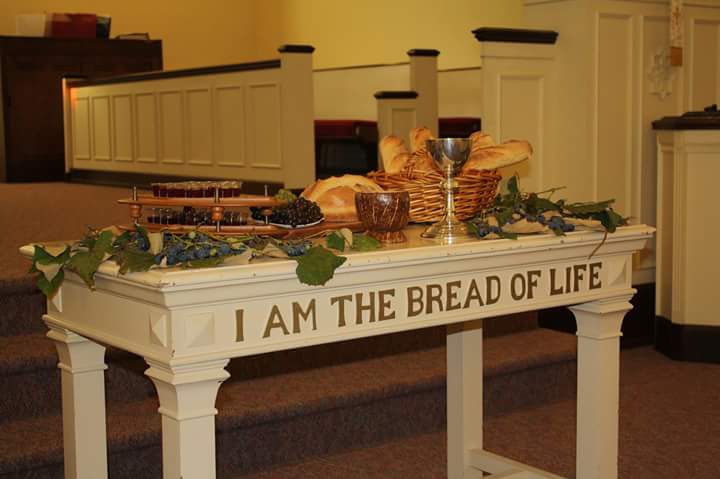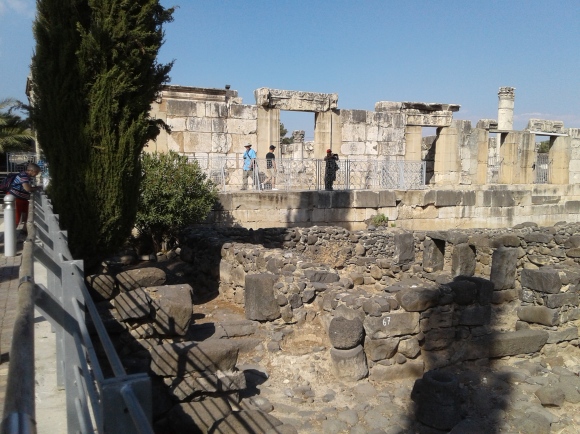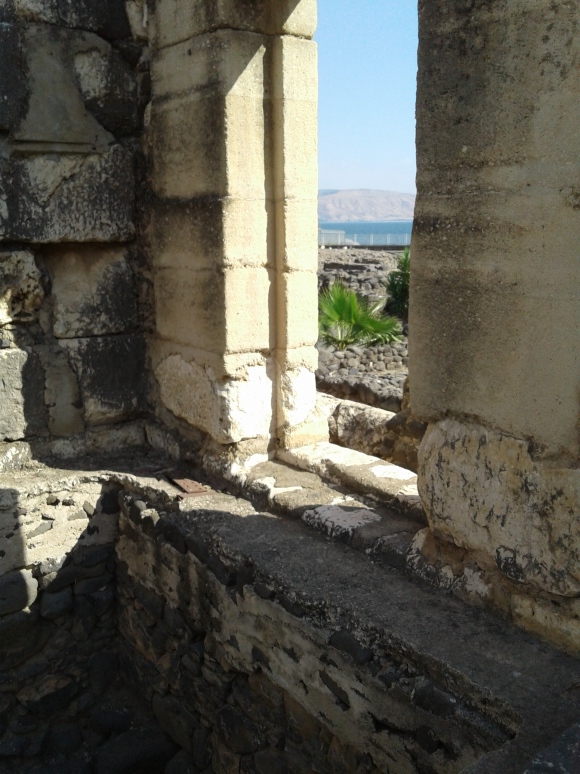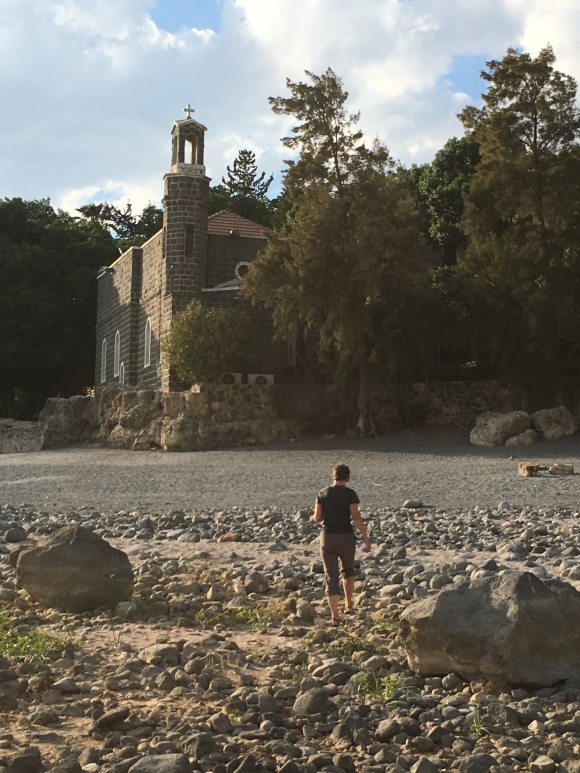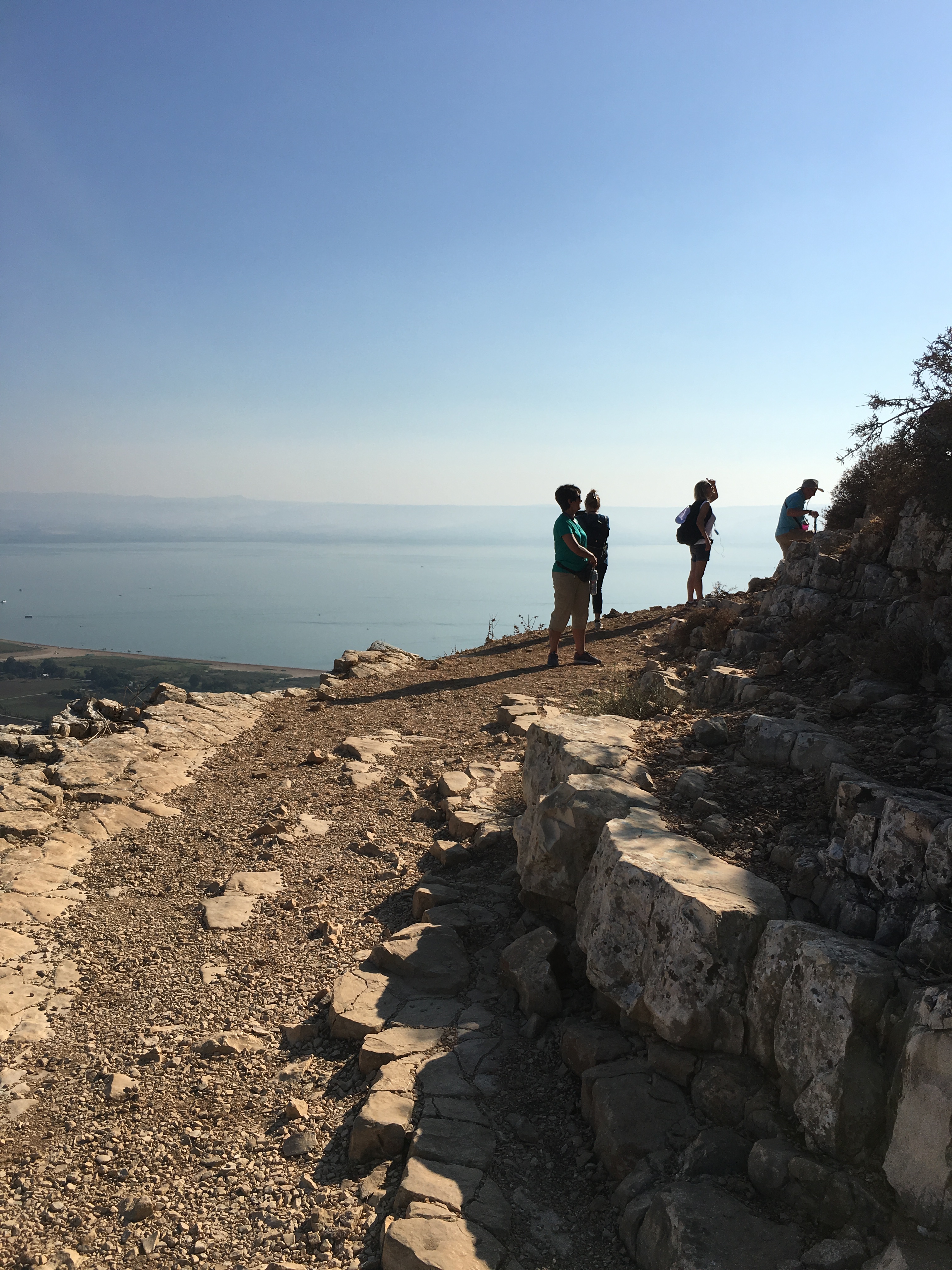 Nehemiah 8:1-10
Nehemiah 8:1-10
8 1 all the people gathered together into the square before the Water Gate. They told the scribe Ezra to bring the book of the law of Moses, which the LORD had given to Israel. 2 Accordingly, the priest Ezra brought the law before the assembly, both men and women and all who could hear with understanding. This was on the first day of the seventh month. 3 He read from it facing the square before the Water Gate from early morning until midday, in the presence of the men and the women and those who could understand; and the ears of all the people were attentive to the book of the law. 4 The scribe Ezra stood on a wooden platform that had been made for the purpose; and beside him stood Mattithiah, Shema, Anaiah, Uriah, Hilkiah, and Maaseiah on his right hand; and Pedaiah, Mishael, Malchijah, Hashum, Hash-baddanah, Zechariah, and Meshullam on his left hand. 5 And Ezra opened the book in the sight of all the people, for he was standing above all the people; and when he opened it, all the people stood up. 6 Then Ezra blessed the LORD, the great God, and all the people answered, “Amen, Amen,” lifting up their hands. Then they bowed their heads and worshiped the LORD with their faces to the ground. 7 Also Jeshua, Bani, Sherebiah, Jamin, Akkub, Shabbethai, Hodiah, Maaseiah, Kelita, Azariah, Jozabad, Hanan, Pelaiah, the Levites,[a] helped the people to understand the law, while the people remained in their places. 8 So they read from the book, from the law of God, with interpretation. They gave the sense, so that the people understood the reading.
9 And Nehemiah, who was the governor, and Ezra the priest and scribe, and the Levites who taught the people said to all the people, “This day is holy to the LORD your God; do not mourn or weep.” For all the people wept when they heard the words of the law. 10 Then he said to them, “Go your way, eat the fat and drink sweet wine and send portions of them to those for whom nothing is prepared, for this day is holy to our LORD; and do not be grieved, for the joy of the LORD is your strength.”
Luke 4:14-30
14 Then Jesus, filled with the power of the Spirit, returned to Galilee, and a report about him spread through all the surrounding country. 15 He began to teach in their synagogues and was praised by everyone. 16 When he came to Nazareth, where he had been brought up, he went to the synagogue on the sabbath day, as was his custom. He stood up to read, 17 and the scroll of the prophet Isaiah was given to him. He unrolled the scroll and found the place where it was written:
18 “The Spirit of the Lord is upon me,
because he has anointed me
to bring good news to the poor.
He has sent me to proclaim release to the captives
and recovery of sight to the blind,
to let the oppressed go free,
19 to proclaim the year of the Lord’s favor.”
20 And he rolled up the scroll, gave it back to the attendant, and sat down. The eyes of all in the synagogue were fixed on him. 21 Then he began to say to them, “Today this scripture has been fulfilled in your hearing.” 22 All spoke well of him and were amazed at the gracious words that came from his mouth. They said, “Is not this Joseph’s son?” 23 He said to them, “Doubtless you will quote to me this proverb, ‘Doctor, cure yourself!’ And you will say, ‘Do here also in your hometown the things that we have heard you did at Capernaum.’” 24 And he said, “Truly I tell you, no prophet is accepted in the prophet’s hometown. 25 But the truth is, there were many widows in Israel in the time of Elijah, when the heaven was shut up three years and six months, and there was a severe famine over all the land; 26 yet Elijah was sent to none of them except to a widow at Zarephath in Sidon. 27 There were also many lepers[a] in Israel in the time of the prophet Elisha, and none of them was cleansed except Naaman the Syrian.” 28 When they heard this, all in the synagogue were filled with rage. 29 They got up, drove him out of the town, and led him to the brow of the hill on which their town was built, so that they might hurl him off the cliff. 30 But he passed through the midst of them and went on his way.
The passage from Nehemiah takes place when some of the Jews have returned to Jerusalem after the exile in Babylon. The beloved city of Jerusalem had been destroyed in 586BC and the residents were marched off to Babylon where they served as slaves for about 50 years. When there was a change in power, the Jews were granted permission to return to their homeland where they could rebuild the temple. King Cyrus of Persia provided safe passage by way of soldiers who escorted them back for the 900 mile journey. The crowd of emigrants would have included children and the elderly. Take a minute to consider how this offer of a return to Jerusalem must have felt. You’ve lived in the same place for 50 years now. Even though you’re of the slave or servant class, there is a predictability to each day. Your family is near. If you are among those who were marched out of Jerusalem 50 years earlier, you remember how hard that journey was. You remember how people died along the way. Many were brutalized by soldiers whose only task was to complete the trip, not to guarantee that every captive survived. Your memories of your homeland have grown dim but your heart still burns for a return to those “good ‘ol days” in Israel. Could you make the trip back? Would you try? For most of us here, if we add 50 years to our present age, we wouldn’t be alive to make the choice! And, if we were, it would be unimaginable to take on a 900 mile journey that required more than four months of walking. Most of the Jewish captives remained in Babylon. But several waves of the faithful made the pilgrimage, beginning the task of setting up new lives.
This passage takes place after they have completed much of the re-building. There has been disagreement along the way and enemies who worked against them. But, on this day, everyone is invited to gather to hear the Word of the Lord read aloud. The Book of the Law had been lost with their displacement so this was a moment of reclaiming their heritage. For the Jews, the Law is a gift. It constrains evil and establishes order. It isn’t meant to be burdensome. Rather it is a compassionate guide that points to a holy way of living. We are given a beautiful insight into the way that worship happened with our ancestors in the faith. The place where the reading takes place is significant. It is by the Water Gate. The gates were public places where open deliberation happened and judgment was meted out by appointed judges. Anyone could be at the gate, even the ritually unclean. So, by choosing this site, this revival was wildly inclusive. Notice how often the word “all” is used in this passage. Everyone is given the opportunity to hear and respond to the Word of God. Their worship—and ours—is necessarily communal. It is not a solo sport!
Ezra is elevated above the crowd, much as we have raised pulpits. As he opens the book the people stand. We do this to show honor to people, don’t we. Did you notice how long he read? Can you imagine us paying attention to anything that long? Wouldn’t it be interesting to do a reading of scripture in Lent that took place over several hours, with people invited to come for whatever part of it they could. Would we care? Would that be more important than swim practice or piano lessons? But these people have been deprived of the scriptures for a couple of generations. Their elders recited what they remembered of the Law while in captivity. But now they had the book, the very source of their religious tradition. We observe from this story that they are famished for the Word.
In the reading that follows, the people meet their God. This is not an example of learning some new facts about God that they find interesting. They experience God’s nearness, lower their faces to the ground, and weep. William Willimon states, “At the heart of preaching is either a God who speaks, and who speaks now…or preaching is silly.” God speaks at the Water Gate through the power of the Word, and the people are transformed. Why do they weep? Are they crying because they recognize how far they have strayed from God’s holy way of life? Are they remembering these words that their grandparents taught them in Babylon but are moved by hearing them now in the setting of their beloved homeland? Do they feel regret for the loss of the Law during the decades of their captivity? Or are they overcome with joy to be back in God’s presence? Maybe some of all of that!
It’s interesting to note that there are people there who interpret the Law as it is read. Like us, the masses need help understanding how it relates to their own lives. If it isn’t applicable, it is of no use. At the end of the worship, the leaders proclaim that the ceremony is holy. It is a special day and they are to celebrate the return of the Law into their community by eating good food, drinking wine and making sure that no one goes away hungry. Imagine an old fashioned church picnic where people put out their covered dishes after the service, and people sit on their red checked blankets enjoying each other’s hospitality. Joy is the proper response to God’s Word, not sadness. This sets the tone for their new life back in the Promised Land.
We see the power of the Word in this story. It welcomes all people and unifies the congregation. It is meant to be heard in community with interpreters available to help people apply it to their daily lives. It leads to repentance and offers forgiveness. This transforms the believer who then responds with joy. Everyone shares in the celebration so that no one is excluded. Does that sound like Church today? I hope so!
About 500 years later, Jesus steps into His home synagogue, having already begun a successful ministry in other parts of Galilee. It states that being in worship on the Sabbath was His custom. He returns to His hometown where He is known as Joseph’s boy and is invited to read from the scripture in worship. This would have been a common way to honor an upstanding man in the Jewish worshiping community. He chooses His passage from Isaiah and it is one that points ahead to the Messiah. It gives the job description of the long-awaited Savior. Jesus reads it in such a way that everyone is amazed at His words. When He is done, He goes back to where His family is proudly seated, sits on the floor with them and says quietly, “Today this scripture has been fulfilled in your hearing.”
This is Jesus’ coming out moment. He is telling these people—and us—what the plumb line to His ministry will be. It is mercy toward the poor, release for those held captive and new vision for those who have been unable to see. If you’ve ever wondered who is a worthy recipient of our compassion, this reading from Isaiah makes that clear. It took tremendous courage for Jesus to read this in front of His hometown crowd and state that He was the fulfillment of the prophecy. It took the presence and power of the Holy Spirit which has filled Jesus. The Spirit that was poured out on Jesus at His baptism is now guiding His actions and continues to be the necessary source of power for the Church. Rev. Joan Gray commented on this text: “When you really think about it, this dunamis of the Spirit is the only thing the early church had going for it. It had no buildings, not budget, no paid staff, and very few members.” So what do we have? We have a budget, paid staff, lovely facility and 300 members. But none of this matters if we haven’t submitted to the Holy Spirit. The power of the Word-made-flesh, Jesus Christ, comes from the Spirit and our well-being as a congregation hinges on our invitation to the Spirit to dwell within us—as individuals and as a church family.
Jesus could have moved on with the adulation of His proud homies. He didn’t have to say anything else and they might have had a parade for Him every time He returned home. Mary, Joseph and their kids could have walked around Nazareth with their heads held high that they were Jesus’ family. But Jesus knows that the pride of Nazareth is not based in a love for God. They’re excited about the fame that comes from being attached to Jesus. They look at Him with greed and wonder, “What’s in it for me?!” So Jesus makes it clear that He’s not there to jump through any hoop they set for Him. He reminds them that most hometowns don’t allow their sons and daughters to stretch beyond their pre-conceived notions and He wasn’t about to constrain the power of God’s Word to keep them calm and complacent.
So the mood shifts dramatically. A riot breaks out and a mob scene drives Jesus to the edge of a hill upon which their town is located. With murderous intent they shove the man who had so enamored them moments before. Imagine the terror this scene brought to Mary and Joseph! Not too much earlier, the Devil had tempted Jesus in the wilderness by urging Him to throw Himself off the highest point of the temple since He was so sure God would never allow Him any harm. Jesus had refused, saying it was not right to put God to the test. But here He is, being pushed to the precipice of a perilous ledge by the people who had patted Him on the head as a boy. And God does save Him! Somehow He mysteriously escapes harm and gets away from them—and never comes back!
Jesus knew there was power in the Word of God and they had rejected it. They weren’t open to new interpretations of the Word. He told them, in no uncertain terms, that TODAY was the fruition of that prophecy and that their Jewish Law called forth mercy for the stranger and freedom for the oppressed. They weren’t ready for action. They wanted to sit complacently in their worship space and go home for another week-as-usual. But Jesus gave them a charge to seize the day and extend forgiveness in radical ways. This so angered them that they almost killed off the Messiah right then and there. The power of the Word was too great for Nazorean neighbors on that day. Jesus set up His ministry headquarters 20 miles away in Capernaum where He found a more receptive audience.
It’s instructive to us that the lectionary planners put these two passages together for the same Sunday. This is a treasure for us since it gives us an insight into what worship looked like for our ancestors in the faith. If we come to worship, ho-hum, expecting nothing new and wishing only to have our usual prejudices blessed, we join those who sat in Jesus’ home sanctuary. We sit with our arms crossed, resistant to change and renewed vision. If we keep asking what God has done for us lately, we neglect the charge to live in the power of the Spirit. We fail to bring Christ to the least of these who may never enter through our red doors. Over the weekend I headed to the dedication of the new community center for City Impact, an outreach to residents of Cedar Springs Mobile Estates. I was looking forward to the worship service where we would praise God for the provision of a renovated building that is right on the periphery of the neighborhood our congregation feels called to serve. As I approached it I was struck that there weren’t too many cars. Since virtually everything was cancelled this week due to wintry weather, I wondered if the dedication had been postponed as well. I parked in the nearby Dollar Store lot and headed toward the building. Even though there weren’t many cars, there was a lot of activity in and around the facility. As I walked in it was a full house, with lots of residents from the nearby Mobile Home Estates. There’s a service counter to the right as you enter and it was loaded with food and drinks graciously offered to the guests. A woman warmly greeted me and, seeing no sign of any planned ceremony, I asked if there was going to be the dedicatory worship at 4:30. She said they had to postpone it until next week because so many of our neighbors still didn’t have electricity in their mobile homes. Some even had pipes that burst. So, out of necessity, they had become a shelter, offering food and lodging to the very people for whom they had renovated the building. She invited me to look around, which I did. It’s attractive and has a great layout for meeting a variety of needs. The sanctuary end of the building was filled with cots and people sitting on their beds talking or resting. A small dog in a plaid sweater was getting lots of attention. Three teenaged girls were clustered together around their phones with some cups of grapes that were being handed out. There were smiles on the faces of the busy volunteers, which brought smiles to many of those whose dire needs were being serviced. I was struck that this really was the perfect dedication of this building. The congregation was gathered—for the first time in this community center that was built for them! It began with a vision that emerged from area Christians who meet God in worship every week. The Word of God went deep. It called them to leave the comfort of life and worship as usual and trade it in for a ministry that has grown tremendously in the past few years. We have felt called to join in on this outreach and have helped in a variety of ways. We’ve delivered food, given gifts at Christmas, distributed backpacks in September and offered Vacation Bible School in their neighborhood. But opening the brand new facility for these neighbors for the very first time as an emergency shelter could not be a more perfect way to spread the news that Jesus is near.
When we invite the Word of God to dwell within us, we are transformed. The hungry are fed. The least of these are served with dignity. The captives are released. Despair is replaced with hope and cold bodies warm up together in a freshly painted space. There’s power in the Word of God and our response is worship—joyful worship! It might not always look the same. It might deviate from what we have carefully planned. But when we meet God and share that joy, we follow in the footsteps of that crowd that met at the Water Gate and listened attentively. Worship was happening at the City Impact center yesterday even if it was a different kind of service than anticipated. As servants of the living Christ we understand that THIS is the day that the Lord has made. Our pre-planned agendas are put aside. We will rejoice and be glad in it! We will come into God’s presence with thanksgiving and praise! Amen? Amen.
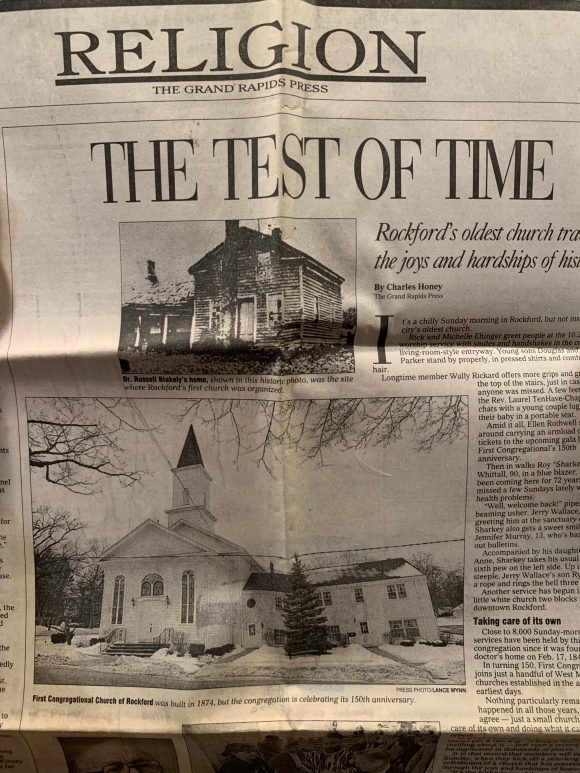

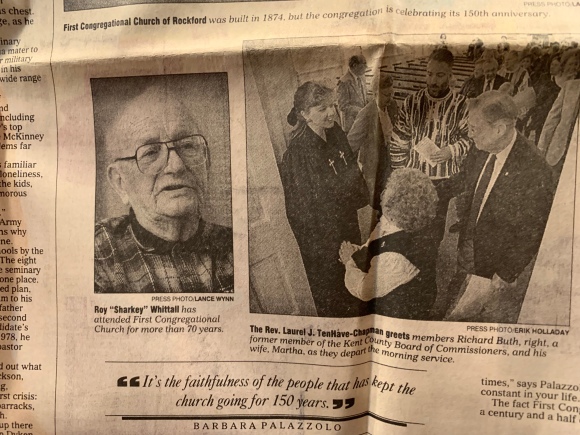

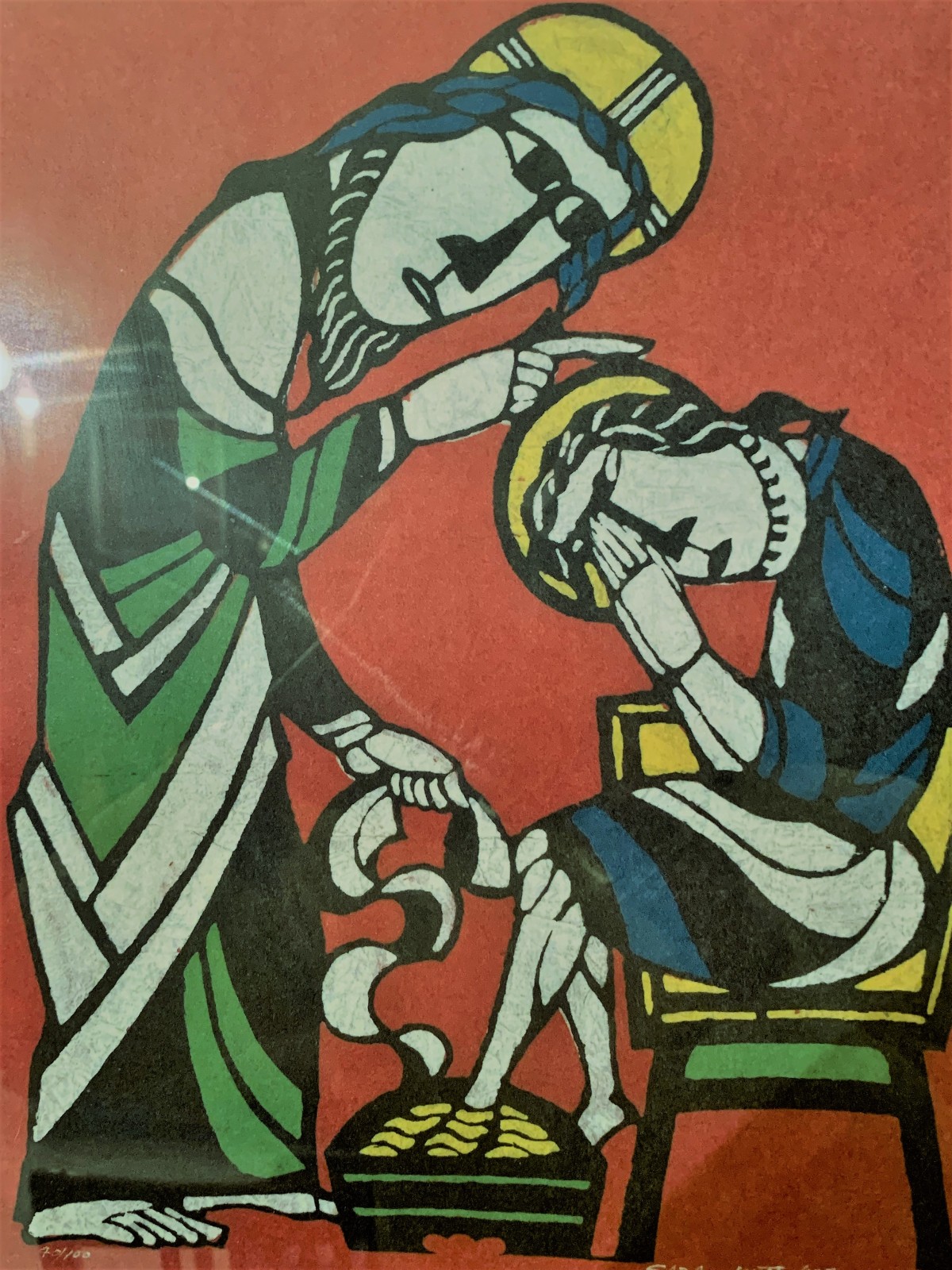









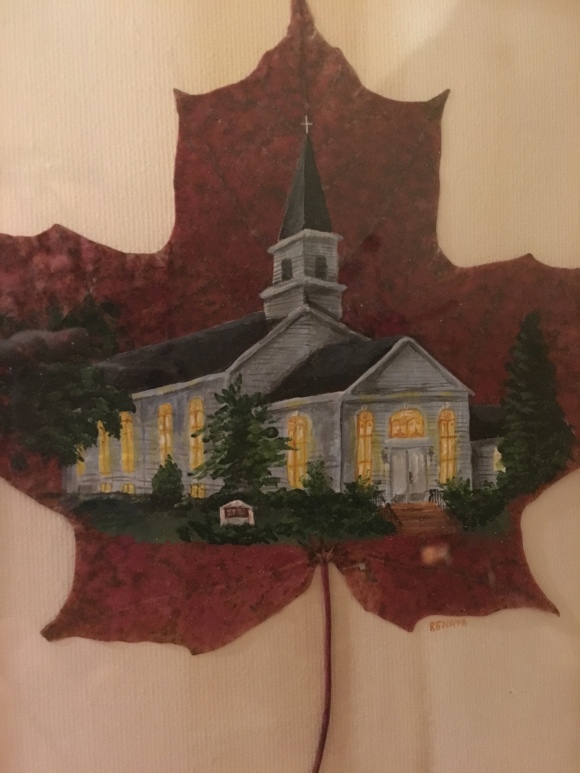




 Nehemiah 8:1-10
Nehemiah 8:1-10